In Sogunro community, teenage pregnancy rules
Procreation commonly known as child bearing is a divine engagement and one that usually brings joy and excitement to humankind, when it is done at the right time and for the right intentions. However, there are occasions that child bearing could be a burden and source of grief because it brings heartache. Investigations by Nigeria Health Online, NHO, reveals that teenagers in Sogunro community immaturely jump into motherhood, which now resulting to infant and maternal mortality, writes Juliet Umeh
From Top: Fatimah, Shadia, Ifeoluwa and Florence
It was a solemn scenario as a family mourned their 16-year-old daughter and her baby who died during delivery on Thursday, September 21, 2017 at Sogunro community. Six days later, another family was thrown into grief again as another loved one, Jeje Michael, 23, died just 9 days after the loss of her second baby during delivery.
Pa Michael, father of the deceased was inconsolable. The aged man who hails from Badagry but resides in Sogunro said his daughter died a preventable and needless death.
“That morning, I was called that my daughter put to bed but lost the baby. No one told me she wasn’t alright. Nine days later, my daughter called to inform me her condition was bad. I got there on Wednesday morning when I returned from work, to discover her legs were swollen. Five minutes later, she gave up the ghost.
“No one took her to the hospital because there is none around. Although her life could have been saved because I have a brother who is a traditional medicine practitioner, I wasn’t informed she wasn’t alright,” he mournfully narrated. Pa Michael’s other daughter who is 20, is already married and has two children.
“It gives me great concern seeing my teenage daughters bearing responsibility above their age. Sometimes, when I sit down to think about it, it saddens my heart because raising children is not a task for young girls,” he lamented.
However, the aged father blamed the environment and poverty as the main contributors to the high rate of teenage pregnancy in the community.
“I am not praying to continue staying in this area all my life. All these things are contributing to our children misbehaving. There are more boys than girls in this area. If you see one girl, four boys will be following her. This is what is responsible for our teenage girls getting pregnant.
From further investigation, NHO discovered the high rate of maternal and child mortality, especially involving teenage girls, is a common feature of Sogunro community. This, from all indications, is contributing to the maternal health burden of the Lagos state which is still at 555 per 100, 000 live births (NDHS 2013).
This was confirmed by the Woman Leader, Funmi Segodo, 58, who highlighted a twist in the matter. Segido, a mother of 12, hails from Badagry. She said dwellers in the region give their children out in marriage as soon as they attain age of 10-11 years and that boys in the community are considered ripe for marriage at 15.
“With other tribes mixed with us here, teenage pregnancies and teenage deaths are too much. The reason this menace is so rampant is because they give daughters to their younger brother to marry. They don’t allow the girls to be fully mature,” she revealed.
Although living in the community, Funmi stated that the men that are marrying their nieces are Nigeriens. “They marry themselves like Indians and they don’t go to school. Poverty is just too high and that compounded the girls’ problem,” she added.
Pa Michael stated the fact that culture permits relatives marrying each other, especially if the family promises to take good care of the wife-to-be. “It is true but it is not by force. If it is a place your daughter can go and enjoy her life, then if you see them you will be happy,” he confirmed.
Findings by NHO among most women in the area showed that they all had their babies as teenagers while in their parents’ houses.
A 20-year-old mother of three, Fatima Teslini, who moved in with the boy that fathered her children last year, remarked that she lost her two-year-old baby recently.
“I was an apprentice tailor and had a problem with my eye, so I decided to quit. Mistakenly, I got pregnant for my boyfriend who was helping me. My mother wasn’t happy when I got pregnant. So I had to leave her to be with him.”
Florence, a 19-year-old mother of two had her children in her parents’ house but lost her nine months old baby to diarrhea.
Ifeoluwa is a 20-year-old mother of four who also moved in with her husband last year. “I had three of my children in my mother’s house but got married last year. The fourth baby is for my husband and I’m going to have more children for him because he is the only child,” she said. As for 20-year-old Shadia, her three children were born in her parents’ house.
Findings showed that the men and women of Sogunro Community are not in full control of the sexual and reproductive health matters of their children and require the help of government to exercise their control.
One of the traditional rulers, Baale Agbojete Johnson, whose 19-year-old daughter married a 21-year-old boy, spoke his mind: “It is not everything that I can do as a traditional leader. We don’t have hospitals. If there is any plan to bring a hospital here, it will help enlighten the girls.
“We need government to send people to this community to educate the girls about the dangers of what they are indulging in and check their excesses. The girls all sell fish, they are otherwise unemployed. If employment is provided for them, I think it will reduce such acts to the barest minimum.”
Experts say there is a strong correlation between the age of a mother and maternal mortality and morbidity. Research reveals that childbirth is the number one killer of teenagers and it’s reported that one million teenage girls suffer death or injury from pregnancy across the world.
As of 2013, statistics by the National Population Commission showed that about 23 percent of adolescent women aged 15-19 years were already mothers or pregnant with their first child. Experts also said that girls aged 11-13 are five times more likely to die in pregnancy or childbirth than women aged 20-24 and girls aged 15-19 are twice as likely to die.
A Senior Registrar and Obstetrician/Gynaecologist, Lagos State University Teaching Hospital, (LASUTH), Dr. Joy Agbara, told NHO that teenage pregnancy is a high risk venture to gynaecologists. She explained that such pregnancy is a challenge because the teenager is still a child; an evolving woman who requires care and guidance.
“Early childbearing is one of the major causes of obstetric fistula – a preventable condition in which tissue is torn when blood supply to the tissues of the vagina and bladder or rectum is cut off during prolonged obstructed labour,” Agbara explained.
She noted that it was unacceptable for young people who are the future of the country to be getting pregnant and dying from pregnancy complications attached to it.
A Consultant Paediatrician at Lagos University Teaching Hospital, LUTH, Dr Gbemisola Boyede, also added that teenagers are still kids whose reproductive organs are not fully developed.
“Their reproductive organs are yet to mature in handling pregnancy. They are at the risk of having VVF where they begin to have urine leakage. Of course, some of them can die even during the prolonged labour because there’s usually a prolonged labour, some of them don’t have opportunity to have Caesarean Section (CS), some of them could actually lose the child even their own lives as well during that process.
“How can a kid cater for another child? So it just becomes a vicious cycle of another child who will end up become malnourished, who will end up becoming one of the statistics that are bad for Nigeria,” she said.
However, a Consultant Psychiatrist, who specialises in Child & Adolescent Psychiatry in LUTH, Dr Yewande Oshodi, believes that society has failed such teenagers. “The reality is that such children, when we see them, we have failed them, and the system has failed them. As parents they have been failed, as members of the community they have been failed. If we blame the child then we are not ready to solve the problem, the problem is greater than them.
Commenting on the parents who willingly give out underage children in marriage, she also said: “That is part of the failure that we are saying. The failure is bigger than just the parents. As a nation, there should be laws that would spell out the penalties for those parents. In a society where we have the Child’s Right Act enforced, such would not be happening. The child right law says a child is expected to have certain fundamental rights. If there is a law that enforces it, those parents should be arrested. So we have failed,” she maintained.
Dr.Opeyemi Odedere, Maternal Newborn and Child Health Adviser for the Save the Children Initiative (SCI), believes sensitization would help solve the problem because he believes that knowledge is power. He aligned his view to illiteracy, poverty, ethnicity and culture as factors encouraging these children.
Noticeably, Non-Governmental Organizations such as the Nigeria Urban Reproductive Health Initiative, (NURHI) continue to encourage teenagers to take up family planning as antidote to teenage pregnancy. For instance, Oluwaseun Ilori is an unmarried young lady but she decided to embrace family planning because, according to her, she does not want to have unplanned pregnancy.
According to Agbara, “We need to remove the hypocrisy. Children need to be aware of their sexuality because if you don’t teach them, they will get the information elsewhere. The cyber world is open to them, so they explore all sorts of things.”

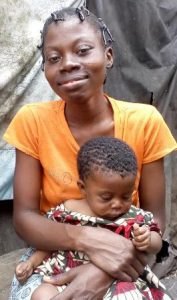
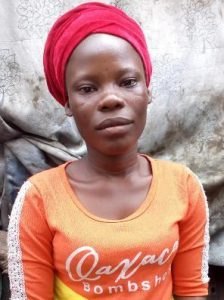



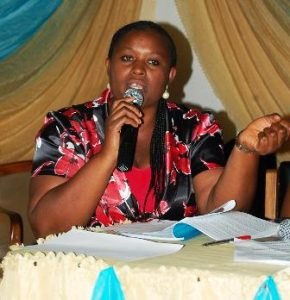

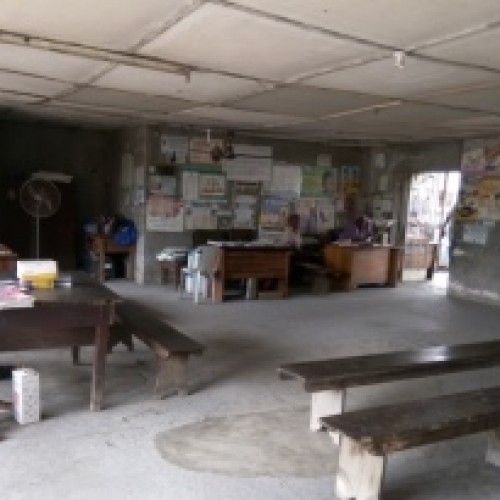
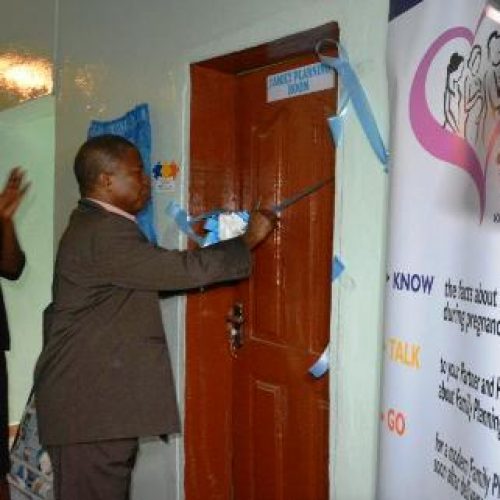
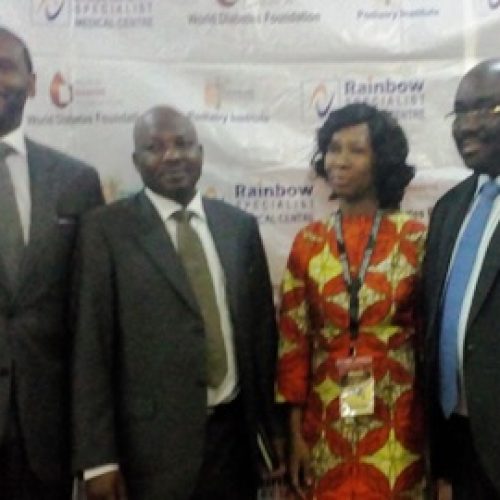










1 Comment
visits
March 08, 19:32